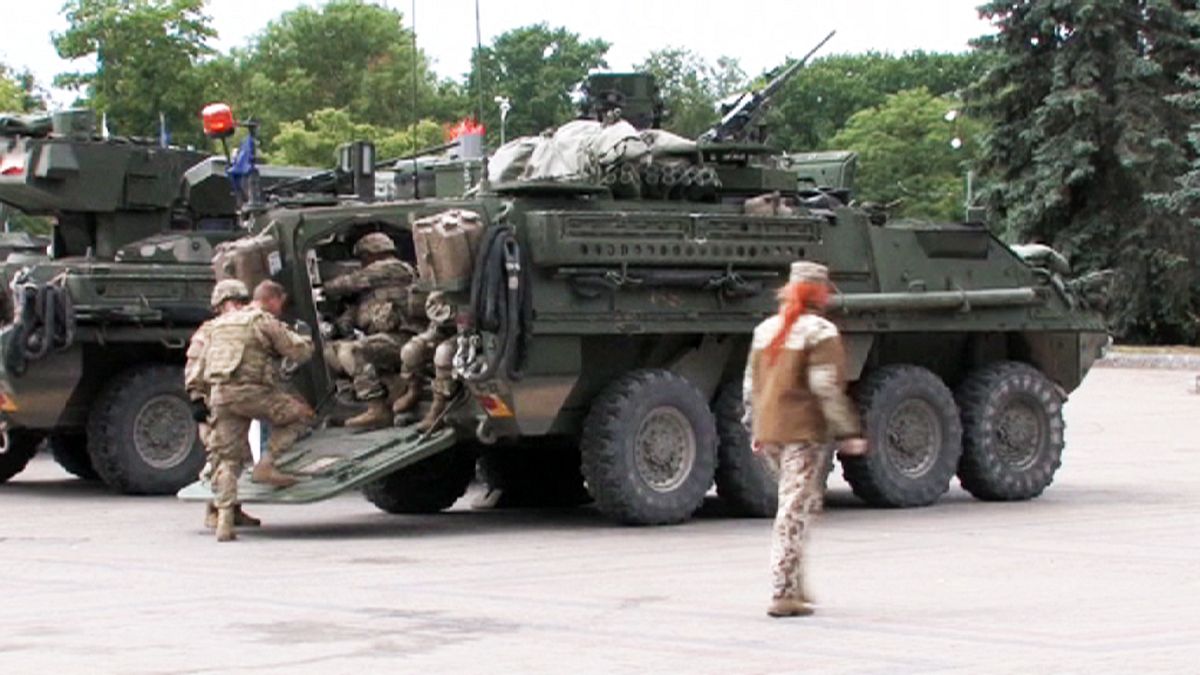A convoy of US military vehicles arrived in Latvia on Monday after starting a tactical march from Germany as part of a military exercise, reported Reuters news…
A convoy of US military vehicles arrived in Latvia on Monday after starting a tactical march from Germany as part of a military exercise, reported Reuters news agency.
Some American troops held a military display in the south-east of Latvia near the Belarus border.
It’s the first time US Army troops have visited the mainly Russian-speaking area.
But not all locals were impressed by the display.
What do we need the tanks for? We need to be peaceful. Because now they are bringing all of this [equipment] in and saying that Russia might attack. What, do you really think Russia will come here with tanks?” questioned one local resident.
Russian response to increased NATO activity
Russian Foreign Minister Sergei Lavrov told his Finnish counterpart on Monday (June 6) that the Kremlin would take unspecified measures to respond to increased NATO activity in the Baltic region, making clear he was vexed by Helsinki’s hosting of alliance drills.
Lavrov made his comments at a news conference with Finnish Foreign Minister Timo Soini on the same day as NATO launched Baltops 16, an annual naval exercise, on Finnish soil for the first time.
“We do not hide our negative attitude to the movement of NATO’s military infrastructure towards our borders, to the dragging of other states into the military activity of the block,” Lavrov told reporters.
“Here we will invoke Russia’s sovereign right to ensure its security with measures adequate to the current risks. I am confident that our Finnish friends and neighbours also understand this,” he added.
Lavrov, who said he saw no threats in the Baltic region that would justify the area’s militarisation, did not elaborate on what measures Russia would take.
Soini told the same news conference that military exercises like the one launched on Monday helped strengthen Finland’s military capacity and were “not directed against anybody.”
A large-scale military training exercise involving more than 20 NATO and partner countries kicked off in Poland on Monday, part of efforts to reassure east European nations rattled by Russia’s actions in nearby Ukraine.
Nato launches largest war game in eastern Europe since cold war https://t.co/H6qUtHZVCo
— Guardian World (@guardianworld) June 6, 2016
Russian infantry base in Rostov
Moscow has started constructing a new army base in its southern Rostov region.
“The decision to deploy the division here in the Southern Military District was taken due to the stepping up of the North Atlantic Alliance’s (NATO) forces in close proximity to the borders of the Russian Federation,” senior construction control officer, Leutenant Colonel Alexei Perfilyev said. According to Perfilyev, 13 barracks as well as five office buildings, ten canteens and seven weaponry warehouses were under construction.
While Moscow accused the Western alliance of threatening Russia’s security, NATO said intensified military drills and its plans for increased deployments on its eastern flank are purely defensive after Russia annexed Ukraine’s Crimea in 2014 and backed separatist rebels in Ukraine.
In January Russia said it would create three new military divisions and bring five new strategic nuclear missile regiments into service. Russian media, citing unnamed military sources, said the new Russian divisions would most likely be motorised rifle ones and number around 10,000 soldiers each.


